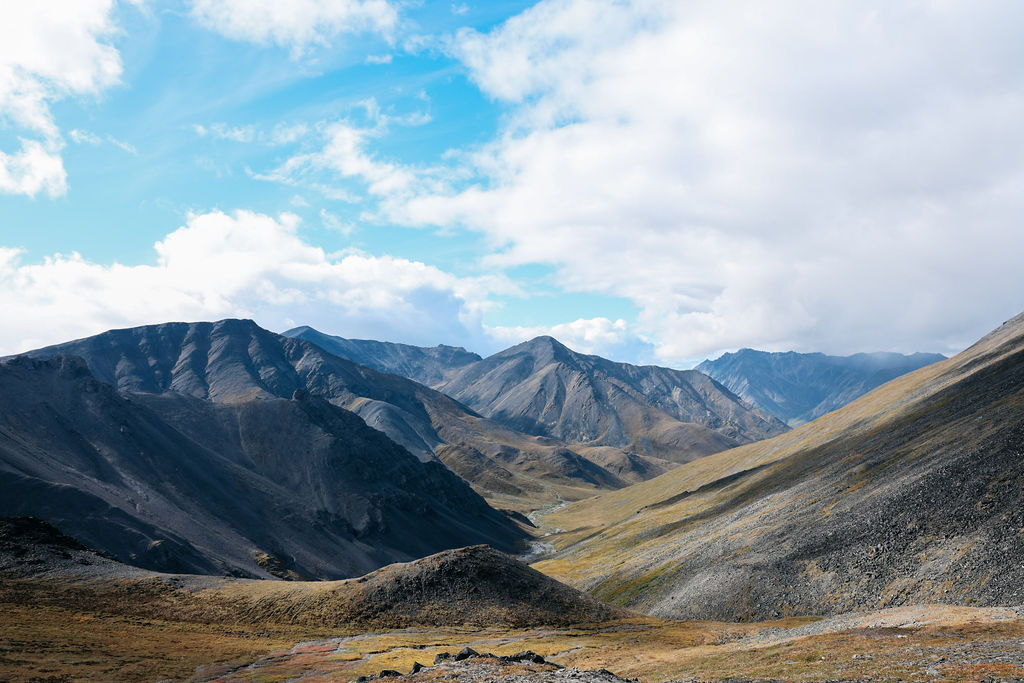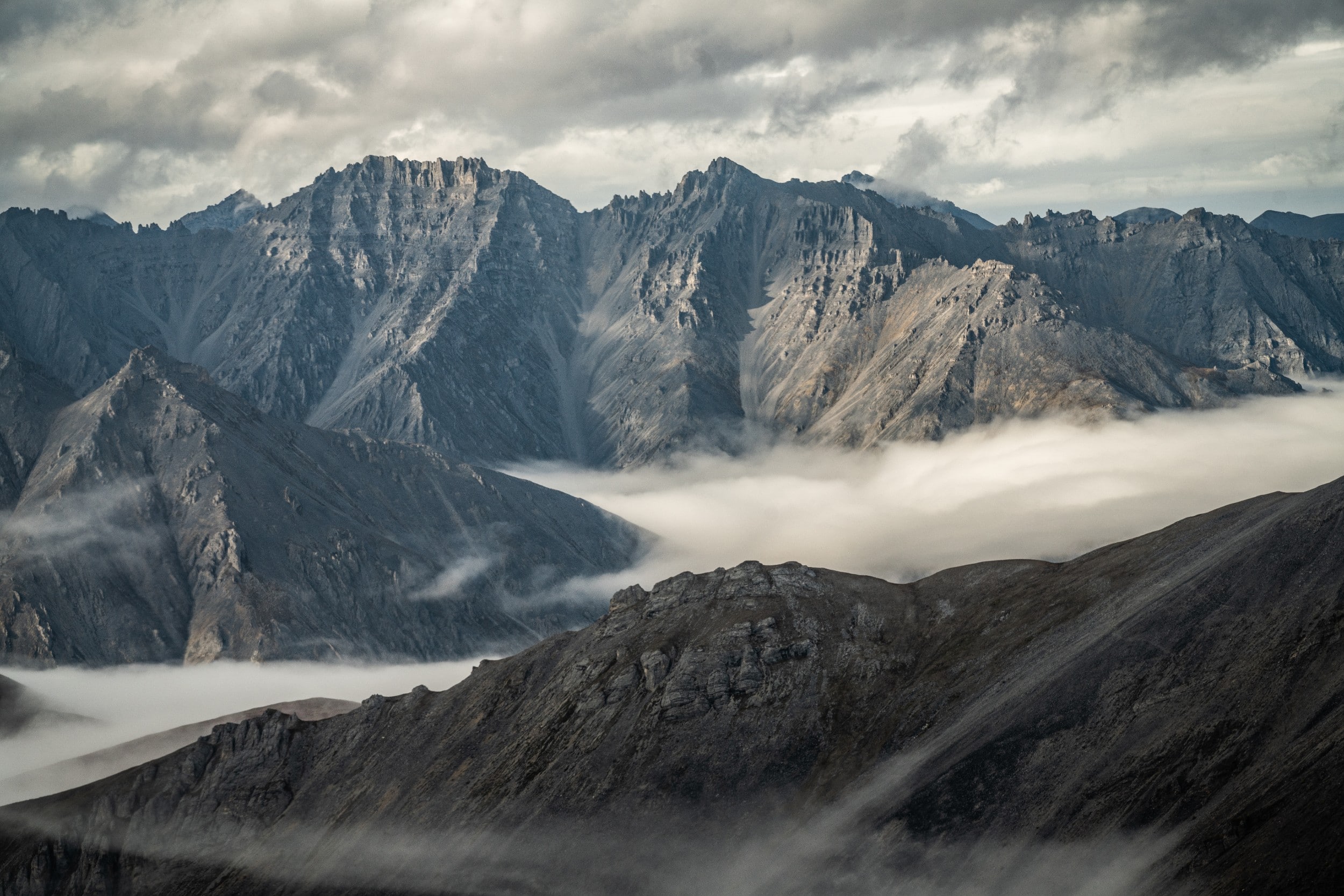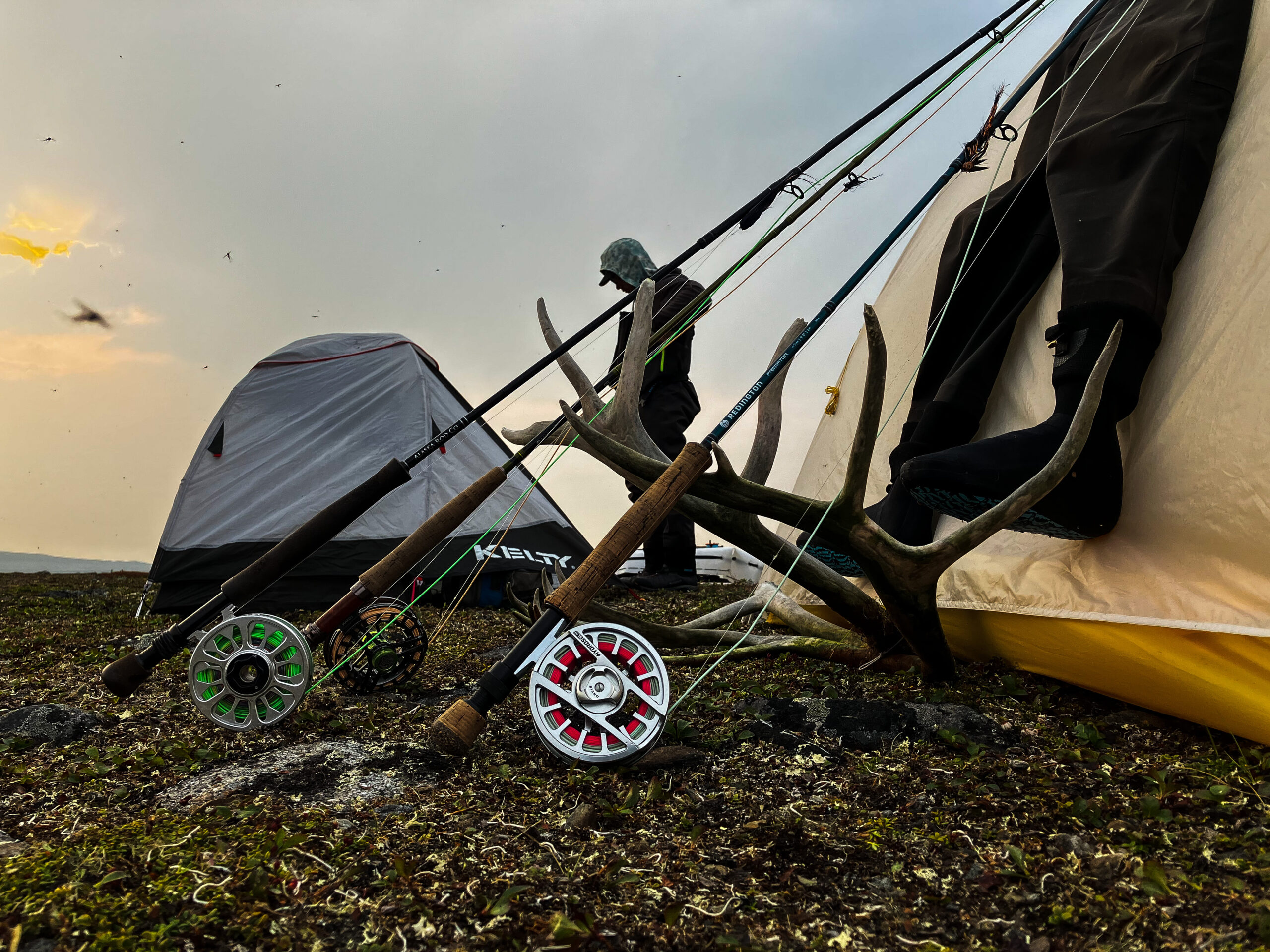Brooks Range Voices: Kelly Reynolds
The lifelong Alaskan and backcountry aficionado shares her love for the Brooks Range and why she believes it’s the duty of hunters and anglers to safeguard this region’s wild country and wildlife from the proposed Ambler Road
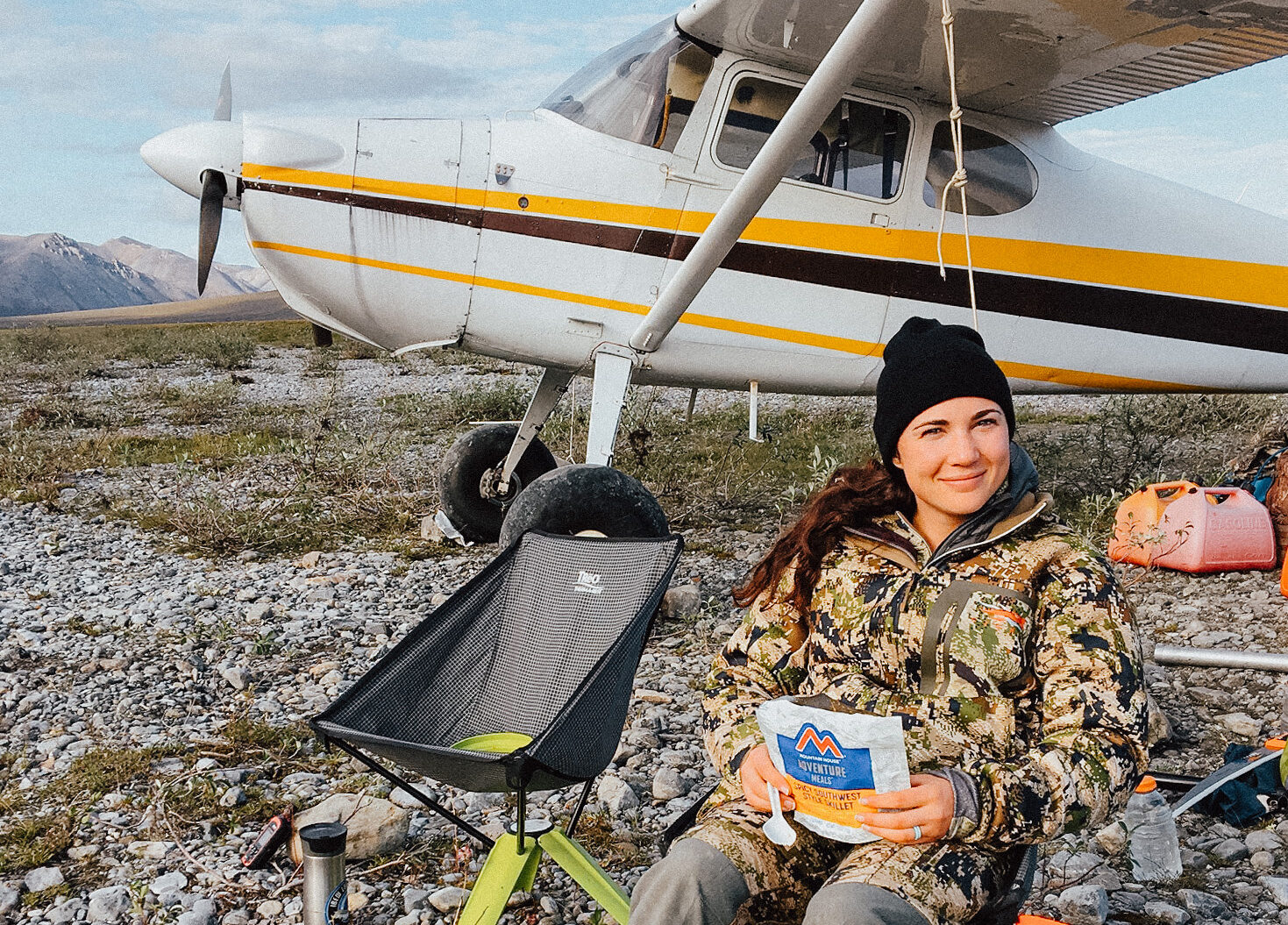
Kelly Reynolds is a pilot, hunter, trapper, adventurer, and photographer who lives in Fairbanks.
A lifelong Alaskan, she lives to explore the wild north. There is no place wilder than the Brooks Range, so Reynolds tries to get in as much time as she can chasing game and adventures up there. And her love of this area comes through in her impressive photography.
Reynolds believes that, as hunters and anglers, it is our duty to be good stewards of the wild places and wildlife we love. She points out that the proposed Ambler Road threatens this core principle. If built, the 211-mile industrial corridor across the Brooks Range, aimed at supporting the development of an unknown number of open-pit mines, would diminish the quality of the region’s land, wildlife, and outdoor experiences.
Here is her story.
What do you enjoy doing in the Brooks Range?
I love exploring the Brooks Range, especially from the air. My primary purpose up there is usually hunting, but I also cherish the moments I spend there for other recreational purposes.
Can you share a favorite memory from your time in the Brooks Range?
One of the most memorable experiences was a sheep hunt with my husband. While we had both explored the Brooks Range before, this was the first time we flew ourselves. Piloting our own plane from Fairbanks into the Brooks to go hunting felt like a dream come true. We saw the most gorgeous views both from the air and on the ground during that trip. The weather varied greatly, from warm days to lots of rain, yet the beauty remained constant.
I remember watching morning fog slowly roll over mountains like a river, caribou running across the tundra, the river transforming throughout a rainstorm, and discovering fish in unexpected streams. We listened to the wind snug in our sleeping bags and watched a white wolf hunt along a hill while ewes and lambs ate and played.
The experiences are easy to describe, but what’s truly hard to convey is how beautiful the land is and how it makes you feel when you’re in it.
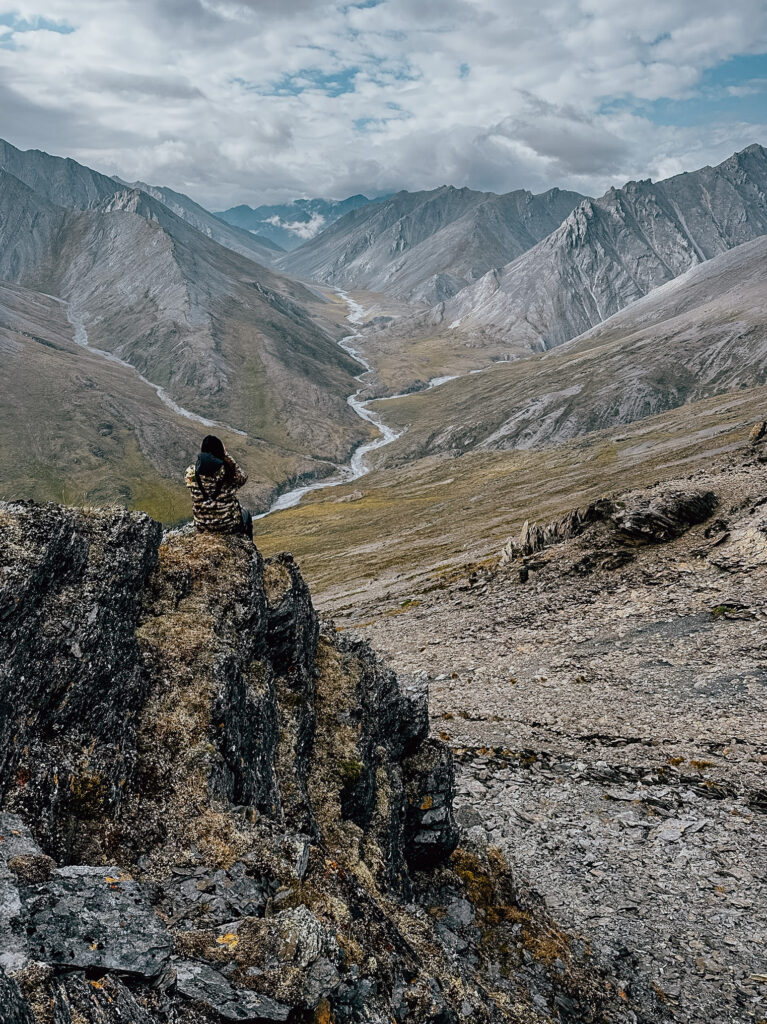
What would you love to do there next?
I have plans to go this summer, hopefully for a float trip. I will be hunting there in the fall, as well.
Think of your first trip to the Brooks – what was different than you expected?
The Brooks Range is so diverse. Any direction you look, the land looks different from where you just came from. It’s amazing to see.
What is most special about this place?
The Brooks Range is so special because it’s so untouched. That is truly magical to me. I live and recreate in Alaska because I love to explore remote locations, particularly where no human has seen or set foot before. The beauty of the Brooks Range is truly hard to describe. It just makes me want to keep coming back and keep exploring new places.
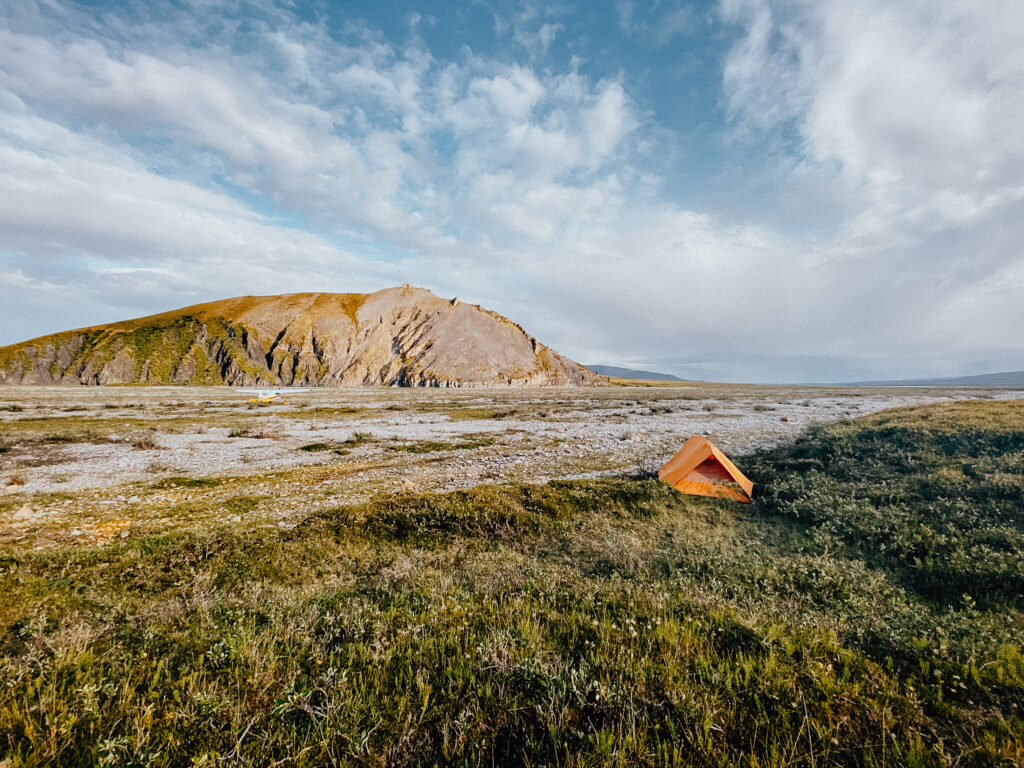
What’s one piece of essential gear you’d recommend packing or advice you’d share with someone going to the Brooks for the first time?
My one piece of advice for someone visiting the Brooks for the first time would be to have a flexible schedule. Allow yourself plenty of time to explore. If you’re driving up the Dalton Highway and you think it will take you X number of hours, give yourself more time, because you’ll want to stop and take in the sights. If you’re hunting, ensure you give yourself extra time on each end of your trip in case of weather delays.
The one thing I can’t go without in the Brooks Range is a plane! It’s truly the best way to take in the Brooks, in my opinion.
How do you think your experience in the Brooks would change if the Ambler Road was built? What do hunters and anglers stand to lose?
The construction of the Ambler Road would likely bring about significant changes to the way hunters, anglers, and all outdoor enthusiasts experience the place. I foresee impacts including disruption to wildlife habitat that could lead to a potential decline in game populations and hunting opportunities. Additionally, the environmental consequences – like land erosion, water pollution, and damage to vegetation – could impact the overall health of the ecosystem and diminish the quality of fishing experiences.
For me, hunting and fishing is not my biggest concern. We are fortunate enough to have the privilege of harvesting animals from the land and maintaining our traditions in that way, but a sustainable future that protects wildlife and the land is more important.

What aspect of the proposed Ambler Road project concerns you most?
Mainly that the construction of the Ambler Road could greatly diminish the quality of experiences in the Brooks Range for everyone. While I support the responsible use of natural resources, I believe that the Brooks Range is not the appropriate location for such development.
I’m concerned about severe impacts on the land, both at the mine sites and along the road, as well as the negative effects on wildlife, such as changes in migration patterns. The increased traffic on the Dalton Highway would be another major concern. These impacts are irreversible and go against our responsibility as Alaskans to protect our land, especially considering the scarcity of untouched areas today.
Preserving our outdoor experiences and ensuring the sustainability of our land is not only important for us but also for future generations. I am deeply troubled by the potential consequences if the Ambler Road is constructed and mining activities commence. It raises serious questions about the future of the Brooks Range.
What’s the biggest misconception you’ve heard about the project?
One prevalent misconception I’ve encountered is the notion that it’s solely a road development initiative. There’s a crucial aspect often overlooked — multiple substantial open-pit mines are integral to this project. The footprint of a road is one thing, but the development of these open pit mines is another. And that can never be reversed.
Furthermore, the public won’t have access to this road for a very long time, possibly not even within my lifetime. Instead, it’s the foreign corporations engaging in land development in Alaska that will exclusively benefit from accessing these areas.
Another major misconception that I’ve heard is that wildlife will not be impacted by the traffic traveling the Ambler Road. It was eye-opening to see the studies done by Fish and Game on the impact on the caribou migration from the Red Dog Mine’s road. There will unfortunately be some wildlife casualties on the road, but the major issue is the impact on these animals’ migration patterns. I would encourage everyone to look at that data, which clearly illustrates that there have been tremendous impacts on wildlife by a much smaller road and mine.
Why is it important that hunters and anglers across the nation speak up against the proposed Ambler Road?
I believe as hunters and anglers it is our duty to protect the outdoors. We are first and foremost stewards of the lands and wildlife that we enjoy so much. Whether someone has seen it or has never been to the Brooks Range, it is important to speak up against the proposed Ambler Road. If this plan advances, it sets a precedent for further development that could compromise so much more of the Brooks Range.
Header Image: Photo courtesy of Kelly Reynolds

